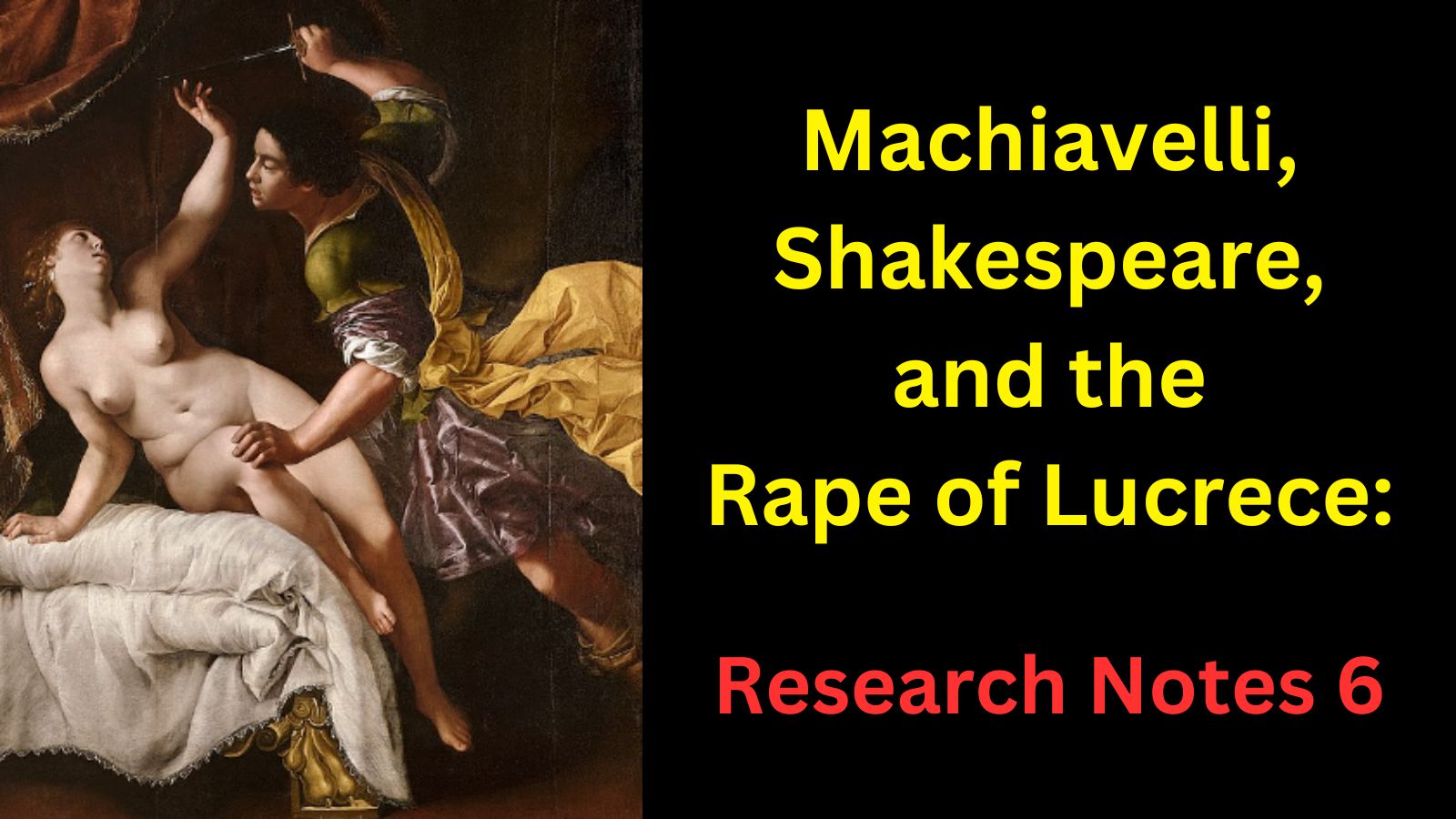
Proposal Accepted!
My proposal to read a paper on Brutus' response to the suicide of Lucrece in Shakespeare's "Rape of Lucrece" has been accepted. So I will be presenting my paper at the Shakespeare and Modern Writers Conference in Hiroshima on 31st August.
I haven't started writing the paper yet, but now there is a deadline, it will help me to concentrate on getting it done!
Plutarch's Parallel Lives: Poplicola
Today, I looked through the Graeco-Roman writer Plutarch, whose works influenced Castiglione, Machiavelli, and Shakespeare.
Plutarch only mentions the rape of Lucretia in passing in his chapter on one of the founders of the Republic, Publius Valerius Poplicola (or Publicola), where the main focus is on the actions of Brutus and Poplicola:
Now Tarquinius Superbus had not acquired his power honourably, but by the violation of divine and human laws; nor did he exercise it in kingly fashion, but after the manner of an insolent and haughty tyrant. The people therefore hated him, resented his oppressions, and found occasion for revolt in the fate of Lucretia, who made away with herself after violence had been done to her.
Lucius Brutus, engaging in the revolution, came to Valerius first of all, and with his most zealous assistance drove out the kings. Then, as long as the people was likely to elect one man as their commander in place of the king, Valerius acquiesced, thinking it more fitting that Brutus should have the office, because he had led the way to freedom. But the very name of monarchy was odious to the people, who thought that it would be less vexatious to submit to an authority which was divided, and therefore proposed and demanded that two men should be elected to the highest office.
Then Valerius, who hoped that he would be chosen next to Brutus, and would be consul with him, was disappointed. For against the wishes of Brutus, Tarquinius Collatinus, the husband of Lucretia, was elected as his colleague, instead of Valerius. He was a man of no greater excellence than Valerius, but the influential citizens were afraid of the kings, who were still putting forth many efforts outside, and trying to appease resentment inside the city, and they therefore desired to have as their commander the most pronounced enemy of the royal family, believing that he would make no concessions to them.
Source: http://www.perseus.tufts.edu/hopper/text?doc=Perseus:text:2008.01.0059:chapter=1
Plutarch's De Mulierum Virtutibus
He also briefly recounts the story of Lucretia in that part of his Moralia dedicated to the Bravery of Women:
The injury done to Lucretia and her great virtue were the causes of banishing Tarquinius Superbus, the seventh Roman king from Romulus, she being married to an illustrious man, one of the royal race. She was ravished by one of Tarquin's sons, who was in a way of hospitality entertained by her; and after she had acquainted her friends and family with the abuse offered her, she immediately slew herself. Tarquinius having fallen from his dominion, after many battles that he fought in attempting to regain his kingly government, at last prevailed with Porsena, prince of the Etrurians, to encamp against Rome with a powerful army.
Source: http://www.perseus.tufts.edu/hopper/text?doc=Perseus%3Atext%3A2008.01.0208%3Achapter%3D14
https://penelope.uchicago.edu/Thayer/E/Roman/Texts/Plutarch/Moralia/Bravery_of_Women*/A.html
No Mention of the Brutus and the Oath
In short, there is no mention of Brutus pulling the bloody dagger from Lucretia's body and making an oath or referring to her suicide as a wretched mistake, as Shakespeare's Brutus does.
Plutarch, Machiavelli, and Shakespeare's Coriolanus
Some of the themes found in the Rape of Lucrece are echoed or developed in Shakespeare's Roman tragedy, Coriolanus, two of the sources for which are Plutarch's Parallel Lives, and Machiavelli:
https://extra.shu.ac.uk/emls/journal/index.php/emls/article/view/219/242
However, in the paper, I will keep my focus on the Rape of Lucrece as I only have 30 minutes in which to deliver it.
Cheers!
David Hurley
#InspiredFocus

